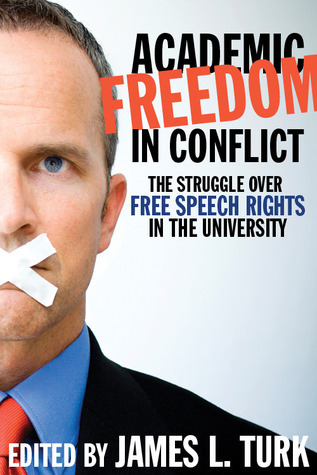
Academic Freedom in Conflict
The Struggle Over Free Speech Rights in the University
Turk, James
Date Written: 2014-03-27
Publisher: James Lorimer & Company Ltd.
Year Published: 2014
Resource Type: Book
Cx Number: CX21689
A look into the changing landscape of the academia, in which government, judges and major donors threaten academic freedom.
Abstract:
-
Publisher's description:
For more than a century academics have had unique rights - to speak, teach, and write freely. Central to the case for academic freedom is that scholars must be able to voice their views free of fear in order for society to gain a better understanding of ourselves and our world and to be effective teachers.
Academic freedom has always faced challenges. Professors have been pressed to alter their work because it offends powerful interests - both inside and outside the university. Some have been fired or denied jobs for their political views, their criticisms of colleagues and administrators, and their refusal to buckle under corporate pressures to hush up research findings. The sixteen contributors to this volume cite many such instances in Canada and the U.S. More significantly, they point out how governments, corporations, and university administrators today are seeking to narrow academic freedom. Among them:
- Major donors are acquiring control over university teaching and even hiring decisions
- University administrators are firing professors with unpopular political views, while pretending that the reasons for their decisions lie elsewhere
- Governments are using funding mechanisms to force-feed research in some areas, while shutting down inquiry in others
- Campus-wide policies enforcing civility rules are preventing criticism and debate within a university
- Judges are issuing decisions which reverse previous rulings supporting academic freedom in the U.S. and Canada
Together the contributors to this book examine attempts to restrict academic freedom and explore its legitimate limits.
...
Contents
Preface
Jon Thompson
Introduction
James L. Turk
I. Academic Freedom and Institutional Autonomy
Chapter One: Professors Beware: The Evolving Threat of Institutional Academic Freedom
David M. Rabban
Chapter Two: Institutional Autonomy and Academic Freedom in the Managed University
Len Findlay
II. Academic Freedom and Disciplinary Norms
Chapter Three: Academic Freedom and Professional Standards: A Case Study
Matthew W. Finkin
Chapter Four: The Right to Think Otherwise: Professional Norms or Prescribed Doctrine
Mark Gabbert
Chapter Five: Tensions Inherent in the Theory and Practice of a Self-Regulating Community
Joan W. Scott
III. Academic Freedom and Religious Belief
Chapter Six: Academic Freedom as a Constraint on Freedom of Religion
John Baker
Chapter Seven: Academic Freedom and Religious Conviction at Canada's Faith-Based Universities and Colleges
William Bruneau
Chapter Eight: Academic Freedom from a Christian University Perspective: A Personal Reflection
Gerald Gerbrandt
IV. Academic Freedom and Equity
Chapter Nine: Demonstrations on Campus and the Case of Israel Apartheid Week
Richard Moon
Chapter Ten: Balancing Academic Freedom and Freedom from Discrimination in Contested Spaces
Anver Saloojee
Chapter Eleven: Academic Freedom and the Federal Idea
David Schneiderman
V. Academic Freedom and the Growth of University-Industry Collaborations
Chapter Twelve: Academic Freedom, Conflicts of Interest and the Growth of University-Industry Collaborations
Sheldon Krimsky
Chapter Thirteen: University-Industry Relations in the U.S.: Serving Private Interests
Risa L. Lieberwitz
Chapter Fourteen: Protecting the Integrity of Academic Work in Corporate Collaborations
James L. Turk
VI. Academic Freedom and Freedom of Expression
Chapter Fifteen: Giving and Taking Offence: Civility, Respect, and Academic Freedom
Jamie Cameron
About the Contributors
Notes
Index


